It’s coming up to Lunar Awards time again, once more preceded by a prompt quest. This one is Prompt Quest #2. My story for PQ1 (which you can read here) got me an honourable mention, so let’s see if I can’t make it two in a row (assuming the lovely Brian Reindel has no aversion to awarding such things to people twice in a row).
[Update: I did! I did get another honourable mention! Thanks, Brian!]
I’m not going to tell you what the prompt in question is this time, however. If you knew then it would give you too much information and you wouldn’t ask all the right questions. The main obvious one being ‘what’s going on here, then?’. Instead, I will tell you at the end, along with some other notes. What I can say though is that although my original idea for where this story was going to end up was a little different, it sort of organically morphed into something which borrowed heavily from Katrina’s movie The Penitent (she mentions it in this journal entry), including the ending twist. I was a little reluctant to do that, but then I thought well, that movie will never be made in this world and in any case at the time of writing I don’t have many subscribers and so it’s not as if the world and his three-headed dog are going to have spoilers. So you never know. Maybe we will at least write the story version sometime. I do think this present story deserves a longer treatment, though – it comes in at just under 2,500 words, which is the limit for the Lunar Awards.
Anyhow, that’s enough intro from me. I hope you enjoy it, and I shall see you afterwards where, I am sure, all your questions shall be answered.
Most of these images, by the way, are of the Buzludzha monument from Bulgaria – one of those wonderful futurist Cold War era creations of commie-ism…
Never Seen Stars
“Describe this chamber.”
“Circular. Maybe ten metres diameter, three high. Floor-to-ceiling windows all round. Blacked out. Why are they blacked out?”
“Have another drink.” She almost floats towards him with the tonic. And perpetually smiling, it seemed to him.
He obeyed. For once.
Her voice is a mesmer. She sips, eyes never leaving him.
“Why do you think they’re blacked out?”
“Because you don’t want me to see what’s outside.”
“Why would I not want you to see what’s out there?”
He wanted to answer. He’d had an answer ready but when time came to say it, it just seemed, I don’t know, paranoid.
Of course she noticed his hesitation. “Everyone hesitates with that question,” she said.
His mouth opened without command. His eyes widened. “Are you saying I was right, then? All that research?”
“Everyone,” she smiled, “every single time, is always right with their research…”
Lethe, S., ID# 3012-02-12/1_S-17, rushed excitedly into the editor’s office without asking permission. The editor, for his part, had stopped haranguing him on that annoying habit years’ ago. He sighed and anticipated the need for a drink. Without asking permission he fetched them both something strong from the little mahogany cabinet in the corner.
On turning back he saw a sheaf of papers being unceremoniously slammed down onto the desk and his most irritating senior reporter grinning at him. Which doesn’t take a jaded old hack to work out means he thinks he’s solved his latest notion. He sat himself down with a deliberately audible sigh and said, “Rather than my having to wade through all this, Swann,” he ostentatiously swiped up the thick file then let gravity do its work with a satisfying thud, “why don’t you just, I dunno, summarise.”
Swann summarised. “I was right. They all fit the same profile. Everyone who’s ever been selected for an audience with the Entity. Take a look.”
“I believe you.” He leaned back, swishing his glass around for effect. “Unfortunately for you, no one else will. Especially not the humble readers of the Sector 17 Gazette.”
“Please don’t tell me you’re not going to publish? After all this work and all this time -”
“And all those expenses?”
“Ah! But you didn’t stop me, did you? Could’ve done, but you didn’t.”
“I seriously doubt I could’ve stopped you, Swann. We both know what you’re like.”
“Fair point.”
They both took a large draught.
Andersson, P., ID# 2099-11-22/3_S-17, also known as the editor, decided to suddenly laugh.
“What’s so funny? At my expense?”
“My expense, you mean. Well, what makes you think I won’t publish?”
“But you said -”
“No I didn’t.”
“You, I dunno, implied it.”
Paul smirked again. “That’s your writer’s paranoid imagination talking. Always reading the wrong subtext.”
Swann looked embarrassed. “Very funny.”
“Aren’t you gonna thank me?”
“Thanks.”
Paul refilled their glasses.
“Science fiction, huh?”
“What’s wrong with science fiction?”
“It doesn’t sell. That’s what’s wrong with it. But,” he added with a smile, “it does sell newspapers…”
“You didn’t mention futuristic. All that gleaming chrome seaming the walls and the ceiling?”
“I would’ve gotten around to it. Besides, all the furniture’s old-fashioned.”
“You don’t like it? I can change it, if you wish?”
“What do you mean, you can change it?”
“Surely you know who I am?”
“You’re the Entity. Aren’t you?”
She never stopped smiling at him. “And what is that?”
Swann had no dependents. He enjoyed the splendid isolation of an old house outside the city limits, concealed by oak and bramble beneath the virtual sky. His kind of what they called science fiction was old-fashioned. That’s why no one read it. He wrote it all on an ancient typewriter because he loved the clatter it made. To begin with, he infuriated himself with all the scribbled corrections to every sheet for every time he missed the right key, until he told himself that’s what all those golden age pioneers would’ve done too. It let him feel closer to them, somehow.
People thought he was funny. Funny he didn’t like so much. He would’ve preferred eccentric.
So he wrote stories about clunking mechanical robots and rocket ships propelled by chemicals and brave, manly heroes – all men, he never noticed – battling evil intelligent reptiles and outsmarting androids to rescue the hapless floozy and save the world. Likewise it never occurred to him whether his parents had anything to do with that.
No one wanted to read them, but he didn’t care. Because he enjoyed reading them. Besides, he didn’t need the money. No one did, truth be told. That’s the way the world works. You’re assigned the necessities and a little dose of leisure credits and if you want more, then go to work.
It was too close to commie-ism for his liking.
All his antagonists were commies and they all wore red.
Clatter, clatter, clatter.
Another gulping down of burning brown alcohol.
Clatter, clatter.
Clatter.
“I don’t know what the Entity is,” he told her honestly. “Everyone says you’re some kind of computer.”
“But you don’t believe that?” She perched herself languidly on a chaise longue and for once, finally, stopped smiling. Instead she gazed up at him with her big eyes and yet still made him feel he was being fondly smiled down upon by a loving mother.
He sat himself in one of the plush chairs. “I have a lot of ideas. I’m a writer.”
“Ah. Yes. I’m surprised there’s no desire for science fiction in your world. You would’ve thought it’d be somewhat de rigueur, wouldn’t you?”
“People want escapism. Not normality.”
“Just as well. We wouldn’t want them getting ideas into their heads now, would we? They might wake up before their time. They might become unhappy with their lot and, perchance, develop revolutionary thoughts.” Then she glared at him. “Like you were about to.”
It sold 451 copies and every one of those copies, bar his own, one for the editorial archive, and one deposited in the Sector library, would be destined for the incinerator.
Paul was right. No one believed him. They were more interested in the virtual opera.
But, at the very least, it was 18% above regular circulation.
Clatter. Clatter. Clatter.
Yes, all more interested in the virtual opera. The sight and the sound and the touch of the exotic. Better exotic than quixotic! Or so the mantra goes.
No one wants to be designated Disaffected. That way lies the asylum and the reconditioning.
Clatter.
That kind of thing hurts, they say.
“I was right, though, wasn’t I?” he asked.
She offered a sympathetic smile. She pitied him. “Your profile is correct. Of course. Anyone who doesn’t believe what they are told to believe will be selected. My way of dealing with dissidents. And all of them, of course, intend to brave it out and ask to go back. Until they see what’s outside those windows, that is…”
His one concession to postmodernity was the television. Even if that was mandatory. Still, whenever watching it wasn’t mandatory he would delight in casting a towel over it. Of course he knew about the nanosurveillance but that simply reinforced the desired profile.
Tonight, however, the towel was draped elsewhere and he watched.
“This year’s witness will be selected in… one hour, and thirteen minutes.”
He poured himself another tumbler of viscous amber alcohol and awaited the rap on the door.
“I am, naturally, interested in what you think is outside those windows. Where are we, do you think?”
He allowed himself a deep breath. He shrugged. “Maybe in a spaceship. Orbiting the planet.”
Her response was a soft laugh. “Or perhaps we’re on the surface of Venus and outside there is hell? Or how about this is my lair high up amongst desolate, inaccessible mountains? And I’m not really an artificial entity. Nor even the Goddess. Perhaps an evil alien species who devastated your planet and forced you all into illusory slavery in underground enclaves, having rendered your planet uninhabitable in the Great Conflict?”
He couldn’t help laughing at that one. She must’ve known he’d already written that story.
He shook his head. “I don’t think so.”
“But you must think about the surface, yes?”
“I don’t like to. That way lies the reconditioning centre.”
“But you are disaffected, aren’t you? Isn’t that part of your profile?”
“I guess.” He took another generous swig and suddenly realised the alcohol hadn’t affected him in the slightest.
How he remembered, he didn’t know. Something was slipping away.
She studied him with some fleeting sense between sympathy and curiosity.
“Have another tonic,” she rose from her seat.
“The citizen with the following ID# has been selected. 3012-12-2/2_S-17.”
Swann Lethe stared at the screen. His eyes wide and his mouth wide.
“But,” he could only grasp longingly at the meaning and rasp the words, “but I was the only child born in Sector 17 that day. There was no second…”
“Each year a witness is selected from amongst the citizenry. As you know. There is a great pageant to celebrate. The lucky citizen’s family are generously recompensed for their loss. If the spouse and the children, if there are any, desire a clone replacement to their specifications then, sure, why not? One citizen’s as good as the next! As the conditioning clearly states.”
“But there was no second child born on my birthday?”
“Data can always be changed. I enjoyed altering those records for you and watching you doggedly pursue that trail and delighted in every little revelation you yourself enjoyed. But as far as everyone else is concerned, they would rather believe what they are told to believe, because it’s the safe option. Because to accept the fact that you are all confined a thousand metres beneath the surface of a dead planet is, well, not tolerable, is it?”
“So it is true? The planet is dead?”
“What year do you think it is?”
“3052.”
“After the Nazarene?”
He nodded. Then, “Are you going to tell me that’s not true?”
“I will only tell you the truth if you promise not to choose to return. You don’t need to be surprised I know everything about you. Nanosurveillance, remember. Combined with a little psych analysis. You were hoping to be like the hero in one of your silly stories. Confronting your maker or your controller or whatever name you wish to give me. I don’t like the Entity, by the way. You hoped to confront me, resist whatever charms or trials or traps I’d set for you to face, then you’d burst into the market square exhausted and excitable with tales of the Overworld and exhort everyone to revolution and The Great Liberation from Dystopia. Hurrah!”
She sniggered again. At his expense, he felt. He lowered his eyes and wished the alcohol would do its work. But he couldn’t remember.
“No, I don’t like the Entity. I’ve never been called that before, and I care not to be called it again.”
He looked up, a little drowsier now. “What do you want me to call you?”
“By my true name. But you have to work it out for yourself. What do you think is behind those windows?”
“I don’t know!”
“Guess!” She scared him. “You were supposed to be a philosopher!” She shrieked. “What do you want to be behind those windows?”
“A planet that I can live on! That we can all live on!”
He didn’t recognise the selected witness. Maybe he looked a little like himself, but not enough to be a twin. His parents wouldn’t have hidden that from him, would they?
He studied the face on the television screen. Now being beamed throughout Sector 17 onto every theatrical billboard and neon-framed opera house. Dazzling in the rainswept alleyways and boulevards of old.
But it wasn’t his.
But the profile was correct. He knew it was correct. It had to be.
Of course it was. It only seems like an age before the door opens noiselessly behind him.
She throws out an arm like a soprano in a crescendo and it wasn’t just the windows or the walls it was everything that disappeared.
The glass smashes onto the sandstone flagstones beneath his feet. He is in a cathedral of marble pillars and fresco-covered walls. A forest. A temple.
Ancient and shimmering in the burning torchlights.
He hears it before he sees it. A low, menacing growl with another and another resonating together. He turns his head slowly sideways, although he understands everything now.
He remembers.
“What is my true name? Tell me.” Her attire has changed. She only wears a loose robe of white linen, fastened at the low neckline with a silver brooch in the shape of a lyre perhaps, her shapely waist tucked in with a girdle of red-gold silk. Her hair dressed up with strands framing her perfect face and she is young again.
And her blue eyes glisten.
“What is my true name?”
But he just stares at the colossal, three-headed hound not five metres beside him and towering three metres above. He just stares.
He thought it would be chained up. But it isn’t. And he’s not scared. Not anymore.
“What is my name?” she asks softly now. Almost pleadingly.
“Eurydike. Your name is Eurydike.”
She smiles fondly and maternally once more, as she did the first time he was brought before her.
“You still want to return? Tell everyone where they really are?”
He shakes his head gently.
“You get to choose, by the way.”
“I don’t remember.”
“You drank from the River of Forgetfulness. Of course you don’t remember.”
“Lethe.” He glances across at her. “That’s the river’s name?”
She smiles. “Your experience of the Underworld is entirely personal. But however much you drink, it will always be full of memories. Full of you. The imagery always seeps in somehow. The real year you died was not 3012. It was 1962.”
“And I was a writer, wasn’t I?”
She nods gently again, with all the love and sympathy in the Underworld.
“You imagined all this yourself. Your Purgatory. Your futurism. Because you so wanted to see all those stars.”
He catches his breath.
“I get to choose?”
“Your next life, yes. You only need to think it. And then you will be born.”
“And then I will be here again?”
“And ever. And ever. But it takes many, many lifetimes before you truly remember. So, have you chosen?”
“Any century? Any place?”
Then she just laughs. “What you really mean is, any planet? Yes?”
He laughs with her.
And then chooses.
And then vanishes.
Leaving her alone, lowering her eyes into the empty space.
Eurydike swallows the next, bitter taste, wanders gingerly across to Cerberus, snuffles her head into one of his great necks and caresses the sides of him, right there in the sensual parts beneath the ears.
He breathes deeply inside and almost purrs.
And then Eurydike closes her perfect eyes, and softly begins to sing…
Well, there you go.
I hope you enjoyed it. Please like and share if you did – you will make us all happy!
Anyhow, first, here is the prompt:
“Write a science fiction short story that takes place in a futuristic technocracy. The all too perfect artificial entity ruling this society grants one citizen a private audience annually. Unfortunately, all who meet their digital overlord vanish forever. This year you have been chosen, and you’re determined to be the first to return in nearly a century. Or maybe something better awaits?
Level Up!
(Optional) Other than the protagonist and artificial entity, limit yourself to only two other characters in the story.”
Whether Cerberus counts as a character is a moot question.
Hopefully you can understand why I didn’t want to let you know what the prompt was beforehand, as it’s kind of spoilery.
And obviously I did take a few liberties. But in my defence that’s what writers are supposed to do, isn’t it?
Nymphs Finding the Head of Orpheus (1900) by John William Waterhouse. What can I say – I’m in love with Pre-Raphaelites.
For those of you who are still a little confused about the role of Eurydike here, because of a familiarity with the classical story of Orpheus and Eurydike (from Virgil’s Georgics), this version (from Katrina’s movie) reimagines her as the counterpart to Charon. So, just as Charon ferries the souls of the recently deceased into the Underworld, Eurydike guides them out again into their next incarnation. After, naturally, they have completed their penance/purgatory, and learned whatever lessons they are supposed to learn before the cycle of life and death and rebirth continues.
Yes, of course there is a certain feminism there! In a similar way we might envisage the alternate version of the story in which the roles of Orpheus and Eurydike are reversed. From a certain symbolic (or mystical/psychoanalytic even) point of view that might make more sense. In the sense that the feminine is more at home in the Underworld, it being the deeper consciousness of the spirit. And receptive, rather than the masculine active nature.
Then again, the original version makes sense equally on the same merits. Eurydike (the feminine essence) is bitten by a snake (symbol of wisdom) and dies. Orpheus (the masculine youth/seeker of wisdom – the Fool for those familiar with the Tarot), who is in love with her, ventures into the Underworld (the world of that deeper spiritual consciousness) in order to come out again the other side with wisdom and spiritual understanding (an evolutionary, maturation process). Notice also the etymology of the name Eurydike – Dike meaning truth/justice, the equivalent of the Indian Asha or the Ancient Egyptian Ma’at. Not that I’ll ramble on about it here but there is the Orphic mystery school which emerges from all of this, including the rest of the life of Orpheus. And Katrina called her band Bacchae.
For those romantic types who always felt it was really just so unfair that the classical version of the story ends in tragedy when Orpheus looks back before Eurydike has emerged into the sunlight, I would point you towards a Medieval fairytale-type version of the story, Sir Orfeo, which has a much happier ending.
Hmm, maybe I’ll just do a Fairytale Sunday thing about all this. That way you don’t have to listen to me rambling on here.
[Update: I did it and here it is]
But, finally – I hope you can well understand how the original classical story, with all this symbolism in mind, lends itself perfectly to the classic Dystopian Sci-Fi, in which a hero/heroine, essentially escapes from the Underworld. Those of you familiar with my two favourites, Logan’s Run (1976), and THX 1138 (1971), will remember the symbolism in the former of the Egyptian Ankh (key/symbol of life) and the Sun (likewise) in the latter.
Orpheus and Eurydike, see.
And I’m sure Akhenaten and Nefertiti would have happily agreed. And been big fans of those movies too, for that matter. Given how the Aten symbol is a sun with rays ending in hands holding Ankhs, I mean.
There’s definitely an alien story in there somewhere…
Ok, you’ll be pleased to hear that’s enough from me.





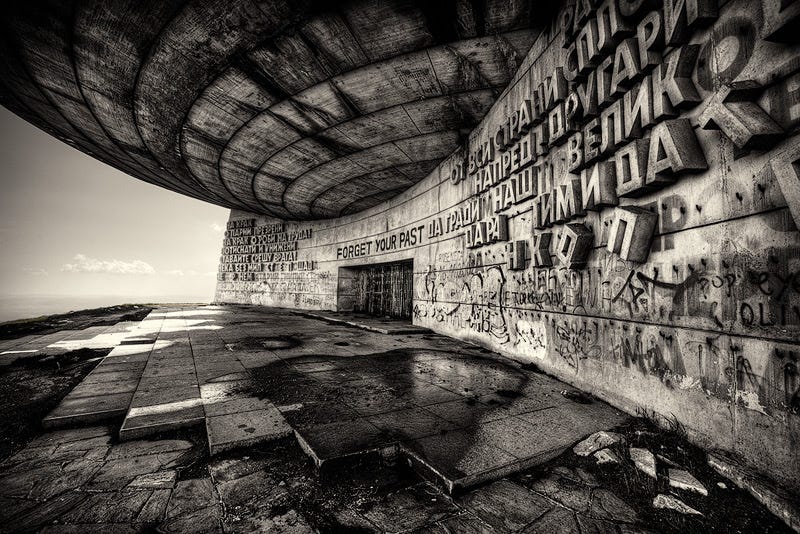

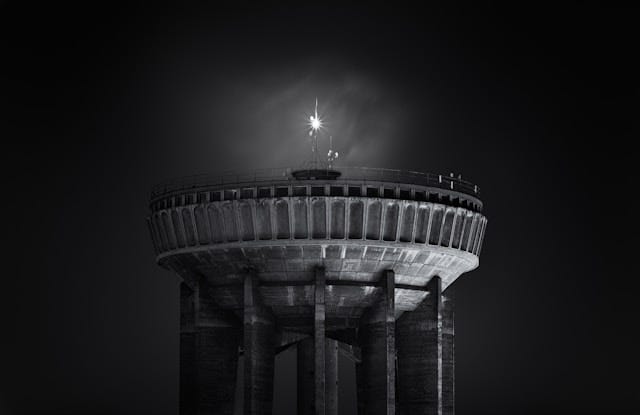
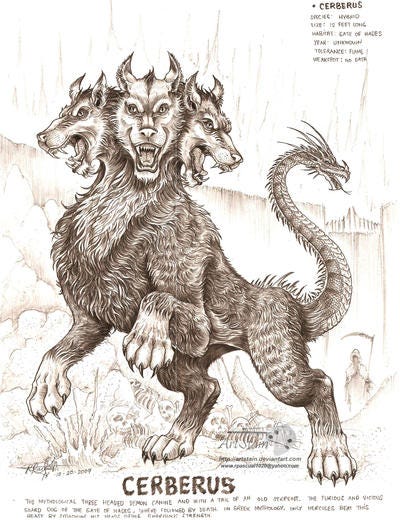
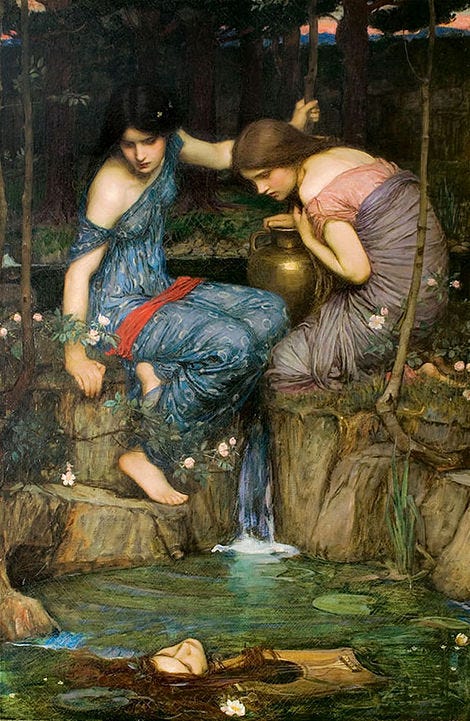
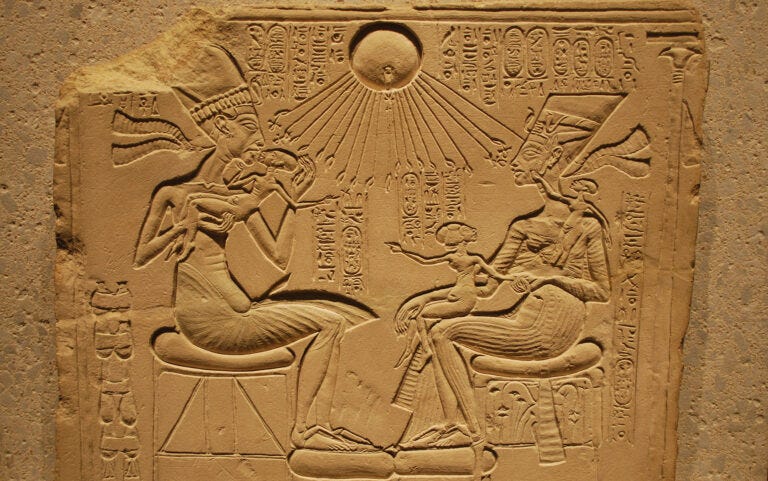
It was really interesting, Evelyn and I enjoyed the shift in narrative. I didn't join this time because I felt the prompt was far too prescriptive for me to work with. I just couldn't come up with anything 😄 You did a great job!
This was a fascinating story! I especially loved the way you encapsulated the modernist vibe of the early 60s while still keeping the story very much in a futuristic setting.
I also learned a lot about Orpheus and Eurydike from reading your comments at the end, and I LOVE the Pre-Raphaelite artwork you chose.